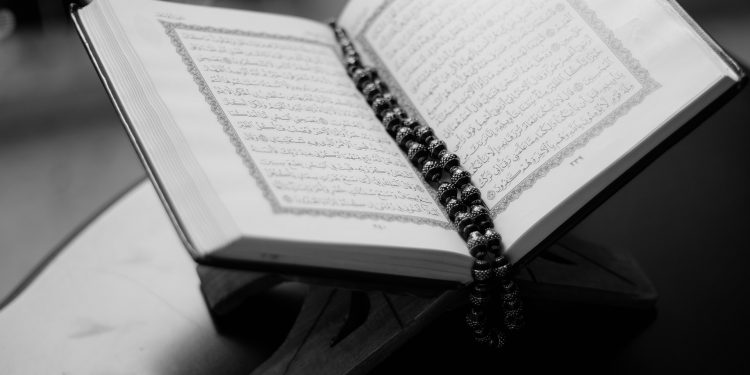Centre Challenges Nikah Halala and Polygamy

Introduction
Yes, I am not Muslim. No, that doesn’t make me biased. This article is meant to throw light on the sensitivity of the two topics of nikah halala and polygamy in Islam, with relevance to the current times.
Defining the Terms
According to Wikipedia, nikah halala is practiced by Sunni Muslims. It is a practice where a Muslim man has the freedom to divorce and remarry the same woman twice. However, if he decides to dissolve the marriage for the third time, he can only remarry the same woman if she first marries another man, consummates the marriage, and the other husband dies or willingly asks for divorce. Another followed practice is polygamy, supported by the following verse:
‘Give orphans their property, do not replace their good things with the bad, and do not consume their property with your own. That is a serious crime. If you fear you will not deal justly by the orphans, marry of the women, who seem good to you, two or three or four; and if you fear that you cannot do justice (to so many) then one (only) or the captives that your right hands possess. Thus it is more likely that you will not do injustice’ ( Quran 4:2-3).
The above quote supports polygamy in Islam by giving men a reason to marry up to four wives – to do justice to ‘orphans’ or children who lost their fathers.
Now, the morality of these practices are often argued against – why can’t a woman also marry up to four men? Does a man also have to consummate a second marriage, then be divorced to remarry his former wife? The question is, are these practices truly against gender equality? No. But, they’ve been exploited in the modern age to the extent of displaying gender discrimination, to the extent that today India is taking a stand.
Perspective
Nikah Halala was originally meant to be an incentive or ‘punishment’ for Muslim men, to avoid the risk of a divorce. If you think about it, why would any man, who wants to remarry his wife, desire her to consummate a second marriage before? Supporting this view, historian Rana Safvi stated, ‘there is no such thing as nikah halala in the Quran.’ She states that the provision was meant to prevent Muslim men from gaining a divorce in a hurry. Similarly, the All India Muslim Personal Law Board (AIMPLB) Vice-President Maulana Syed Jalaluddin Umari said, “There is no sanction in the Quran for such marriages,’ and stated that such marriages are condemned under the Shariat Law. Furthermore, the AIMPLB believes that a ban on nikah halala will not have an effect on its minuscule amount of incidents. For context, the VP explained: “If a man goes to a qazi and says he wants to marry a woman, the qazi will look for the terms under the Islamic law and perform a nikah. What else can the qazi do? How can he know the intentions of the man?” However, there have been incidents where men force their wives to have intercourse with other men, in order to take them back from an accidental divorce.
Coming to the issue of polygamy, the modern views of equality and liberty for all make this practice unethical, as it limits the rights of one spouse from the other. But, the verses mentioned above were revealed after the battle of Uhud, which caused a major gender imbalance. In that situation, it was practical for men to marry multiple women to protect children’s assets or the women themselves. Again, in today’s context, this pragmatic solution may not be necessary, or even moral.
Recent Incidents
In July 2018, the Women Resistance Committee filed a plea in the Calcutta High court, stating that the practices of nikah halala and polygamy violate the Constitution’s Articles 14, 15 and 21. These articles guarantee protection of personal liberty, equality and prohibit any kind of discrimination. However, if so, why is it difficult for Muslim women to plea against bigamy? This is answered by victim Sameena Begum, who filed a petition in the Supreme Court. She stated that the Muslim Personal Law made the Indian Penal Code (IPC) Section 494 (which makes marrying again during the lifetime of a spouse punishable) inapplicable to Muslims. Therefore, women couldn’t file complaints against polygamy. This stance is mirrored in another petition by Nafisa Khan, who states that the IPC applies to all Indian nationals, so Section 498a (where a husband who subjects his wife to cruelty is imprisoned) makes polygamy and nikah halala unconstitutional.
Action
The Supreme Court banned the practice of ‘triple talaq’ in August 2017, where Muslim men could gain a divorce by stating the word ‘talaq’ thrice, in account of its violating Sharia Law. This ruling raised questions on the morality of polygamy and nikah halala. The Supreme Court then seeked a response from the Centre, on its stance. Attorney General KK Venugopal was appointed to lead a team by the Centre to form a case opposing these practices. Political parties in India have also taken sides on this issue. BJP leader Ashwini Upadhyay filed a public interest litigation (the use of legal action to cause social change) challenging the validity of nikah halala and polygamy.
The Supreme Court’s recent decision to repeal section 377 (supporting gay marriage) demonstrates its progressive nature. Now, whether a possible action on these practices would be ‘progressive’ or not, is all based on perspective. To act on this yourself however, you can express your opinions through a respectful medium. Do your research, find your perspective, and start writing.
Image Attribute: Pixabay
